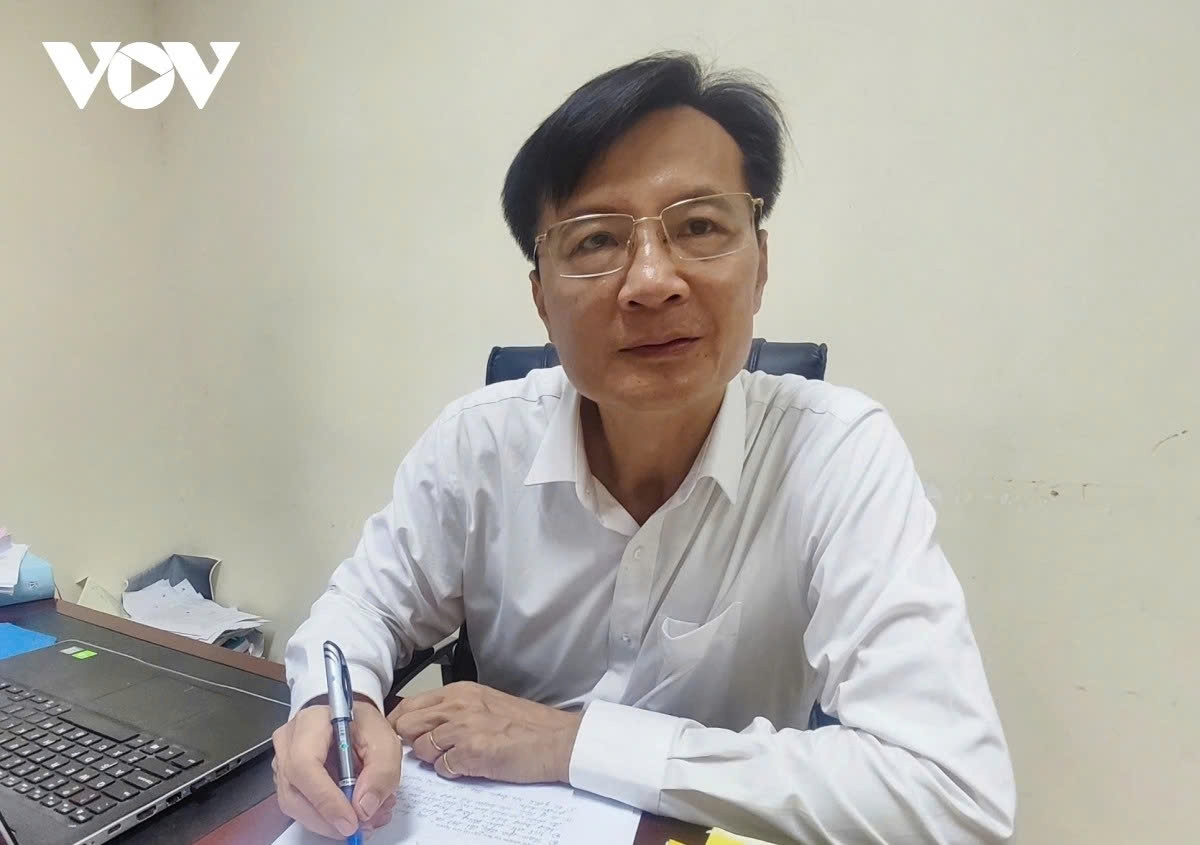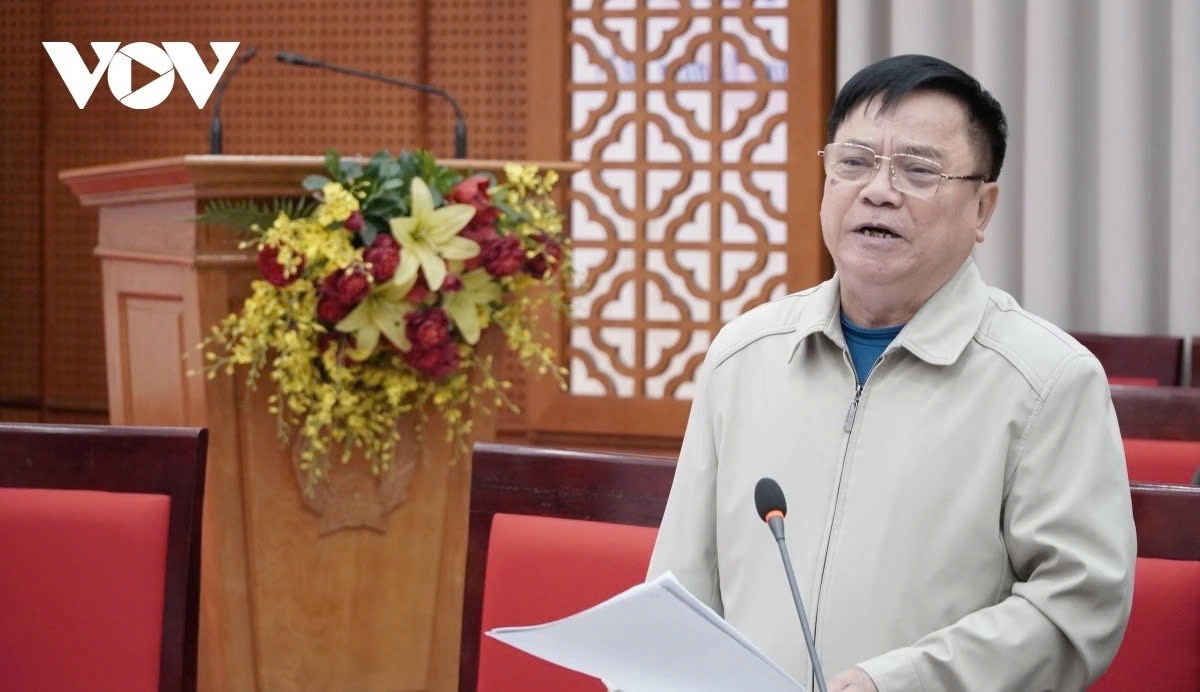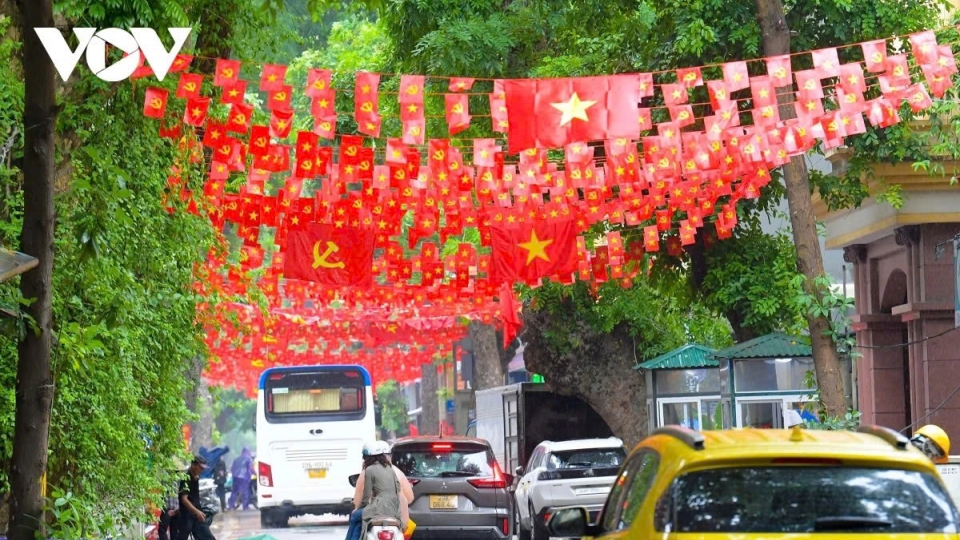Party building and rectification – the key to national development success
VOV.VN - Experts contributing opinions to the draft Political Report for the coming 14th National Party Congress have affirmed that the Party building and rectification campaign continues to be the decisive factor determining every success in the cause of Đổi mới (Renewal) and national development and defence.
Party building and rectification – the foundation of all success

According to Assoc. Prof. Dr. Trinh Van Tung, senior lecturer at the Academy of Leadership and Public Administration under the Ho Chi Minh National Academy of Politics, the document is viewed as both a comprehensive summary of 40 years of Đổi mới and a strategic orientation for the nation’s future development, aiming to transform Vietnam into a developed economy with high income by 2045 on the occasion of its 100th founding anniversary.
The draft clearly reaffirms the foundational model for Vietnam's development in the new period, based on three pillars: a socialist-oriented market economy, a socialist rule-of-law state of Vietnam, and socialist democracy under the leadership of the Communist Party of Vietnam.
It reflects a strategic vision that harmonises national strength with the strength of the times, ensuring the highest level of national interests amid a global landscape marked by complexity and rapid change. The principle of “the people are the root,” placing the happiness and satisfaction of the people at the centre of all policies, continues to be emphasised as a core value.
The draft outlines several specific solutions, demonstrating a determination to streamline the political system toward greater efficiency, improve institutions, remove development bottlenecks, strengthen decentralization and delegation of authority, and strictly handle violations in personnel affairs based on the principle of “appointments must be reversible” and ensuring clear responsibility in leadership, direction, and administration.
In Tung’s opinion, the document recognises that the recent term has seen significant breakthroughs in Party building and rectification, especially in promoting the responsibility of Party members and officials to set examples, particularly those in key leadership positions. Personnel work has undergone fundamental reforms, with the first-time achievement of appointing 100% of provincial and city Party secretaries and grassroots-level inspection committee chairpersons who are not local natives. Party inspection, supervision, and discipline have been carried out firmly, promptly addressing violations by organisations and individuals, including high-ranking officials.
The fight against corruption and negative practices has been intensified with the determination that there will be “no forbidden zones and no exceptions,” contributing to the formation of a mechanism where corruption becomes “impossible, inadvisable, undesirable, and unnecessary.”
Alongside achievements, Assoc. Prof. Dr. Trinh Van Tung pointed out remaining limitations, including ineffective power oversight in some Party committees, and challenges in Party development in remote areas, ethnic and religious communities, and in non-state enterprises.
Perspective on reform and power control

Le Van Hoat, Deputy Head of the Council for Democracy and Law and former Standing Vice Chairman of the Hanoi People’s Council, noted that an outstanding feature of this draft Political Report is its candid acknowledgment of the need for stronger power control in the management of strategic-level officials. He viewed this as an important innovation in the Party’s perception and practice, reflecting the spirit of facing and speaking the truth.
He suggested that the document should include a lesson learned from 40 years of Đổi mới regarding organisational capacity, practical implementation, and institutional quality, along with promoting democracy, transparency, and openness. The next lesson that needs to be learned is the viewpoint of “facing the truth and speaking the truth,” combating formalism and achievements-driven thinking within the Party, in accordance with the spirit affirmed at the sixth National Party Congress.
The scholar also emphasised the need to consolidate national great unity, asserting that the more difficulties and challenges the country faces, the more it needs unity. With regard to Party building, he proposed placing ethics and integrity at the core; fostering strategic autonomy, self-reliance, and confidence across the entire political system; and strengthening Party and State discipline as a prerequisite for effectively implementing all resolutions.
He proposed further affirmation of ethical integrity as a foundation in Party building and continued emphasis on Marxism–Leninism and Ho Chi Minh Thought as the ideological compass for all Party principles and decisions.
The opinions expressed show a shared understanding that the Party building and rectification campaign is a key, decisive task with vital significance for national development. A pure, strong, and disciplined Party is vital to guide Vietnam toward prosperity, happiness, and the defence of national sovereignty, paving the way for it to become a developed, high-income country by 2045.





